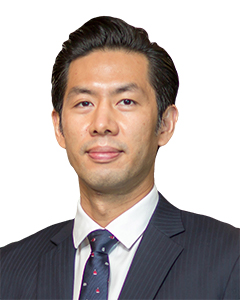Employment laws are constantly changing and becoming more complex. This article highlights updates that are relevant to Hong Kong employers. Court case decisions are used because they are part of the law under the common law system of Hong Kong.
Bonus despite misconduct
In a recent Hong Kong case, an employee was entitled to a bonus, irrespective of her performance under the employment contract, which was payable in full, subject to a finding of gross misconduct by the employee, before the due date of 31 March 2017. The employer did not pay the bonus on the due date, since it was investigating allegations of the employee’s serious misconduct.
In May 2017, the employee was found guilty of gross misconduct and she resigned shortly after, giving two months’ notice.
She did not receive her bonus and therefore sued the employer for breaching the employment contract, and the Employment Ordinance of Hong Kong, in failing to pay her the bonus. The court held that the employee was still entitled to the bonus because:
(1) The employment contract provided that there must be a finding of gross misconduct by the due date before the employer can refuse to pay the bonus (implying that the bonus became the employee’s entitlement on the due date in this case); and
(2) The Employment Ordinance prohibits deduction from any other sum due to the employee including contractual bonuses.
When drafting contractual bonus terms, employers should be mindful of specifying carefully the conditions and timing of entitlement to the bonus, as well as the circumstances where such entitlement will be lost.

Managing partner
LC Lawyers
Resignation v dismissal
In Lam Sin Yi Sindy v Leung King Wai William [2020], an employee submitted a leave application that was questioned by her employer for her being absent from work without cause.
The employee responded that she could return to work in the afternoon, and she did return to the office on the same day.
After heated arguments with the employer, she packed her belongings and did not return to work thereafter. The employer took the above-mentioned actions as her resignation and deducted from her wages an amount equivalent to seven days’ payment in lieu of notice.
The employee made a claim against the employer for underpayment. The court found that the employee was in fact dismissed because:
(1) The employee’s words and conduct could not be properly and reasonably construed by the employer as her resignation, and were ambiguous in all the circumstances; and
(2) She was effectively dismissed when the employer required her to leave.
Employers should note that hostile exchanges with an employee in the heat of the moment may give rise to doubts. In any event, employers should carefully and seriously consider if resignation was in fact intended by the employee. The legal consequences in a dismissal are very different from those in a resignation.

Associate
LC Lawyers
Maternity, paternity leave
The following amendments to the Em- ployment Ordinance came into effect on 11 December 2020:
(1) The statutory maternity leave entitlement increased from 10 weeks to 14 weeks;
(2) The total additional maternity leave pay for the additional four-week period is now subject to a cap of HK$80,000 (US$10,300);
(3) An employee who suffers a miscarriage at or after 24 weeks of pregnancy will be entitled to maternity leave (as opposed to 28 weeks of pregnancy before the amendment);
(4) A pregnant employee will be able to claim sickness allowance if she produces a certificate of attendance (as opposed to a medical certificate) issued by a registered medical practitioner, a registered nurse or a registered midwife (as opposed to just a registered medical practitioner), who conducts the medical examination in relation to her pregnancy; and
(5) Statutory paternity leave has been extended from within 10 weeks after the birth of a child to within 14 weeks.
Harassment protection
The Laws of Hong Kong were amended on 19 June 2020 to enhance protection in the following aspects:
(1) Protection from sexual, racial and disability harassment in common workplaces is extended to workplace participants who have no employment relationships (i.e., interns and volunteers), and obligations not to harass others in the workplaces are imposed on such workplace participants under the Sex Discrimination Ordinance, the Disability Discrimination Ordinance and the Race Discrimination Ordinance of Hong Kong;
(2) Employers will be held vicariously liable for acts of harassment committed by a workplace participant unless practicable steps have been taken to prevent workplace participants from committing those acts;
(3) Protection against racial discrimination and harassment are extended to associates of the individual (i.e., the spouse or domestic partner) and the definitions of race and racial groups have been widened to include the imputation of a race or racial group to a person, under the Race Discrimination Ordinance; and
(4) It will be unlawful to directly or indirectly discriminate against breastfeeding women in key sectors including employment under the Sex Discrimination Ordinance. These provisions will come into force from 19 June 2021.
Employers should review and update their existing employment contracts and policies to ensure they are always in compliance with the law.
Rossana Chu is the managing partner and Jacky Chan is an associate at LC Lawyers

LC Lawyers LLP is an independent law firm, and the Hong Kong law firm member of the EY global network, in collaboration with other law firm members.
Suite 3106, 31/F One Taikoo Place
979 King’s Road, Quarry Bay, Hong Kong
Tel: +852 2629 1768
Fax: +852 2956 1980
E-mail:
Rossana.Chu@eylaw.com.hk
Jacky-CH.Chan@eylaw.com.hk
www.eylaw.com.hk





















